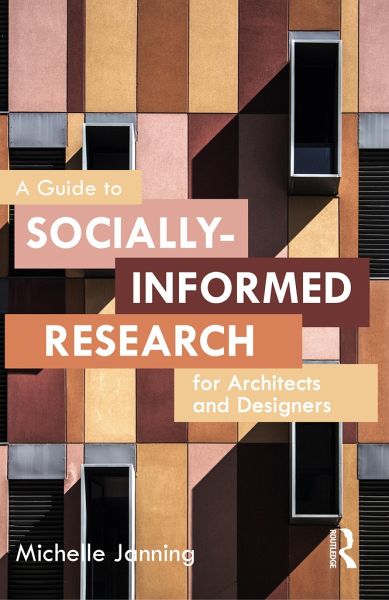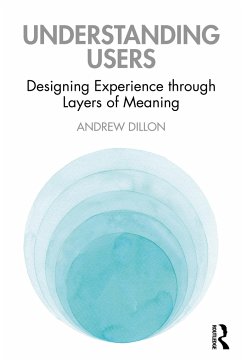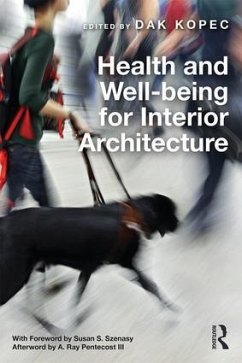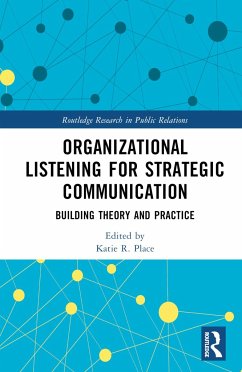
A Guide to Socially-Informed Research for Architects and Designers
Versandkostenfrei!
Versandfertig in 6-10 Tagen
36,99 €
inkl. MwSt.
Weitere Ausgaben:

PAYBACK Punkte
18 °P sammeln!
This book offers an efficient set of step-by-step tips and overarching lessons about how to gather useful, meaningful, and socially-informed data about clients' and other stakeholders' experiences in architecture and interior design professions.In this guide, author Michelle Janning helps the design professional conduct ongoing evaluation of design projects, create useful pre- and post-design evaluations, frame effective questions for improved future design, involve various stakeholders in the research process, and focus on responsible and evidence-based human-centered design to improve the re...
This book offers an efficient set of step-by-step tips and overarching lessons about how to gather useful, meaningful, and socially-informed data about clients' and other stakeholders' experiences in architecture and interior design professions.
In this guide, author Michelle Janning helps the design professional conduct ongoing evaluation of design projects, create useful pre- and post-design evaluations, frame effective questions for improved future design, involve various stakeholders in the research process, and focus on responsible and evidence-based human-centered design to improve the relationship between design and people's experiences. Examining a variety of both large- and small-scale project examples from different institutional realms, including healthcare sites, schools, residences, eating establishments, museums, and theaters, this book highlights not only the overlap in these types of projects but also the differences between project sizes that may impact the methods used in any given project. It also offers tools for how to communicate design success to audiences that include potential clients, occupants, and other designers.
A Guide to Socially-Informed Research for Architects and Designers is a go-to reference for design professionals interested in using accessible social scientific methods to gather essential and practical information from people who occupy the spaces they design and to do so in an ethical, inclusive, and socially-informed way in order to enhance social sustainability in the built environment.
In this guide, author Michelle Janning helps the design professional conduct ongoing evaluation of design projects, create useful pre- and post-design evaluations, frame effective questions for improved future design, involve various stakeholders in the research process, and focus on responsible and evidence-based human-centered design to improve the relationship between design and people's experiences. Examining a variety of both large- and small-scale project examples from different institutional realms, including healthcare sites, schools, residences, eating establishments, museums, and theaters, this book highlights not only the overlap in these types of projects but also the differences between project sizes that may impact the methods used in any given project. It also offers tools for how to communicate design success to audiences that include potential clients, occupants, and other designers.
A Guide to Socially-Informed Research for Architects and Designers is a go-to reference for design professionals interested in using accessible social scientific methods to gather essential and practical information from people who occupy the spaces they design and to do so in an ethical, inclusive, and socially-informed way in order to enhance social sustainability in the built environment.














